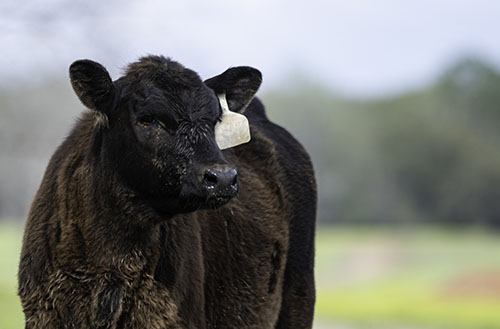State Vet Announces Disease Detection
May 22, 2023

The Tennessee State Veterinarian is confirming a case of atypical bovine spongiform encephalopathy (BSE) in a cow with ties to Tennessee.
The cow appeared unwell after arriving at a packing company in South Carolina. In alignment with the United States Department of Agriculture’s BSE surveillance program, the animal was isolated and euthanized. It did not enter the food supply. Preliminary investigation has determined the cow originated in southeast Tennessee.
“We are working closely with our federal partners and animal health officials in South Carolina for this response,” State Veterinarian Dr. Samantha Beaty said. “That includes determining prior owners and locations where the affected cow lived in Tennessee and tracing siblings and offspring for testing.”
BSE is a chronic degenerative disease affecting the central nervous system of cattle. It is caused by an abnormal prion protein. The atypical form occurs spontaneously at very low levels in all cattle populations, particularly in older animals. Atypical BSE poses no known risk to human health. It is different from the classical form of BSE, which has not been detected in the U.S. since 2003.
BSE is not contagious and therefore is not spread through contact between cattle or with other species. There is no treatment for or vaccine to prevent BSE. The U.S. has a strong surveillance program in place for early detection and to prevent suspect cattle from entering the food supply chain.
Cattle owners are always advised to monitor their herds for health. Cattle affected by BSE may display changes in temperament, abnormal posture, poor coordination, decreased milk production, or loss of condition without noticeable loss of appetite. Owners should report any herd health concerns to their veterinarian or to the State Veterinarian’s office at 615-837-5120.
The Tennessee Department of Agriculture Animal Health Division is responsible for promoting animal health in Tennessee. The State Veterinarian’s office seeks to prevent the spread of disease through import and movement requirements, livestock traceability, disaster mitigation, and the services of the C.E. Kord Animal Health Diagnostic Laboratory. The division collaborates with other health-related stakeholders, academic institutions, and extension services to support One Health, an initiative to improve health for people and animals.
Learn more about USDA Animal and Plant Health Inspection Service - Bovine Spongiform Encephalopathy (BSE) Information here!